Pallet raised beds are a fun and eco-friendly way to grow plants. However, since they are regularly exposed to soil and water, their life expectancy is a big question. Lucky for you, we did the research and found the answer!
Pallet raised beds can last from three to five years, depending on weather conditions, moisture, and the type of wood they're made from.
Wood pallets are designed for transporting goods and are not sturdy enough to last long in the garden, so they aren’t equipped with the right “formula” to stay intact for a very long time.
There are a number of ways you can avoid changing the pallets every three to five years! The key is in the details and knowing how to treat your pallets right. This post will provide you with the most valuable tips for keeping your pallets strong. Read more to learn more.
![Pallet collar self made raised beds in parmacultural garden, How Long Do Pallet Raised Beds Last? [With Tips To Make Them Last Longer!]](https://gardentabs.com/wp-content/uploads/2022/11/Pallet-collar-self-made-raised-beds-in-parmacultural-garden-How-Long-Do-Pallet-Raised-Beds-Last-With-Tips-To-Make-Them-Last-.png)
Lifespan Of Pallet Raised Beds
Pallets are mostly made of untreated pine or lumber. Because they're made only for cargo purposes, they're not meant to be fancy.
Since they're usually made of untreated wood, pallets can be strongly affected by their surrounding environment.
Pine, a type of softwood, is the cheapest and most common material used to make pallets. These pallets are often used to make a raised bed in a garden.
When exposed to fast-changing weather, soil, and moisture, you can expect such a pallet to last three to five years.
With all the exposure, untreated pallets will be prone to mildew and insects, causing them to rot in the long run.
It's easy to understand why gardeners love using wood pallets as raised garden beds. They're relatively cheap (sometimes they're free), and the wood easily fits in with the garden's theme.
Even if you take really good care of an untreated pallet, you probably won't be able to keep it for longer than its life expectancy. And replacing it every five years will be tiresome!
Also note that not all pallets are suitable for garden beds. Some pallets have been treated with harmful chemicals or pesticides that could leach into the soil or plants.
How To Prolong The Life Of Raised Pallets
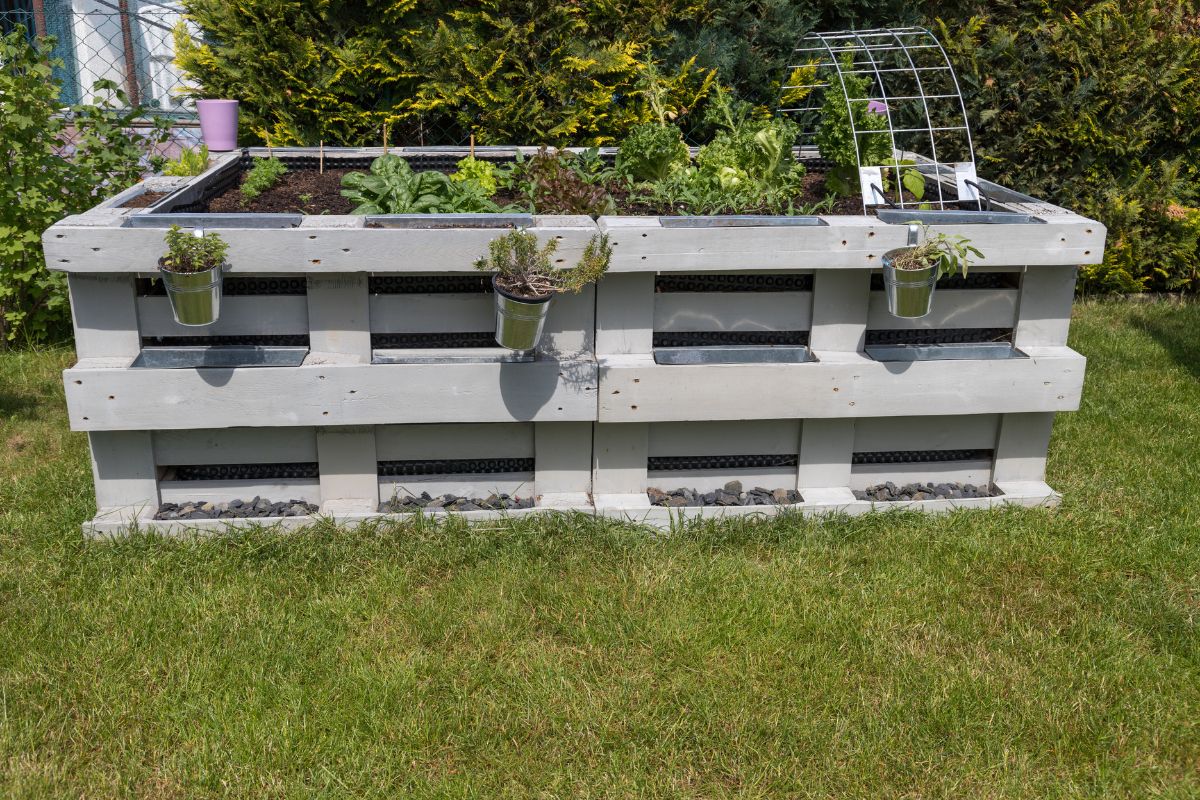
You can always opt for better material than wood and try to make your pallets last longer with the following tips:
- Use liners (if you’re okay with using plastic)
- Treat the pallets (or buy treated ones)
- Choose a sturdier type of wood (redwood, cedar, juniper)
- Choose a different material (plastic, concrete, stone)
Use Plastic Liners
Adding plastic liners to your raised garden beds is a good way to make the wood pallet last longer.
With a plastic liner, the water doesn't seep out of the soil and into the wood. In other words, the plastic acts as a barrier, preventing the pallet from infestation and rot.
Other than that, it's also recommended to use plastic liners in the garden. They keep insects and away and are good for insulation.
If you want to keep your garden plastic-free, there are many materials out there that you can use.
To learn more about lining your pallet raised beds, read our post How To Line A Planter Box [And Should You].

Check out this plastic liner on Amazon.
Treat The Pallets
If you happen to have untreated pallets in your garden, don't worry! You can still treat them at home. Treating your pallets will prevent them from wearing out and rotting.
If you treat your pallets, make sure that you're not using them to grow crops because you'll be using chemicals for treatment that shouldn't be around edible fruits and vegetables.
You can treat your pallet with any of the solutions below:
- Epoxy finish
- Paint
- Varnish
- Stain
These solutions are great for keeping moisture out and for UV protection. Before treating, make sure to sand the pallet for the solution to adhere.
You can also purchase treated pallets that have already been coated with the right solution, and all you have to do is store your soil. Using treated pallets will increase the lifespan for more years.
Besides chemical-treated pallets, you can also opt for a heat-treated pallet. Unlike chemical-treated wood, these pallets are safe to use around crops.
Heat-treated pallets are sterilized in order to remove any hazardous content and prevent insects and termites from digging through.
Choose A Sturdier Type of Wood
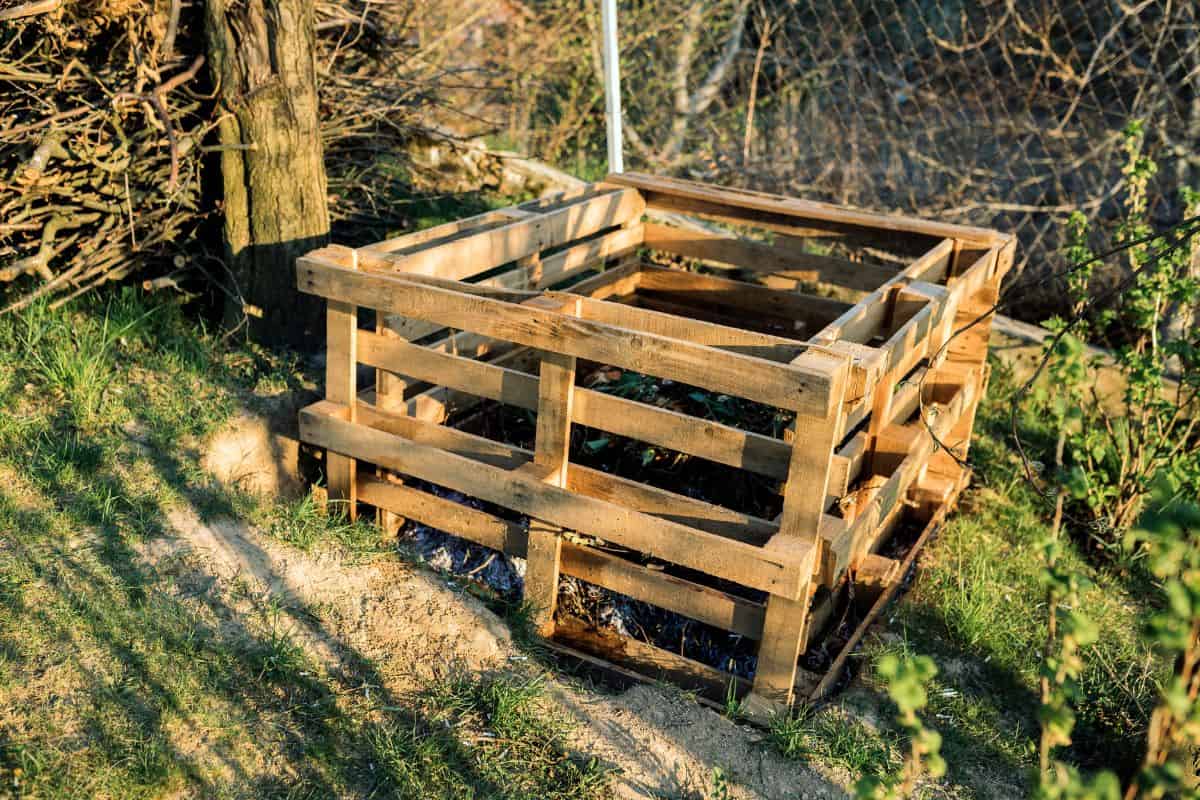
You can also opt for a sturdier type of wood for a longer-lasting pallet. Redwood and cedar are naturally rot-resistant. These types of pallets may last between 15-30 years!
Juniper is on another level, too! It can last for more than 30 years, depending on how you treat it (a bonus if it's lined or treated). Juniper trees are known for lasting for centuries, so it's no wonder that the wood lasts a long time as a raised garden bed.
These types of pallets can cost a little more than your typical pallets, but if they last for decades, that's a great tradeoff.
Choose A Different Material
Wood pallets are both aesthetically pleasing in the garden and eco-friendly. But you can always opt for other materials that are long-lasting and require less maintenance.
Recycled plastic pallets, for example, last as long as 50 years. Galvanized steel can last between 20 and 40 years. Concrete and stone can last for a lifetime, but they cost more than wood pallets.
If you think about it, what's important when it comes to garden pallets is durability and longevity. With untreated pallets, you're bound to replace them in a few years. Replacement is the least of your worries with concrete, stone, steel, or plastic.
These materials may also come with extra costs, including the masonry unless you want to build the pallets yourself. You'll need to consider the required effort to DIY pallets at home.
With that in mind, plastic pallets are a great way to store your plants or crops. They are cheap and long-lasting. Most plastic pallets are made of recycled PET or HDPE. Even better, they can last for 50 years!
This raised garden made of bricks also looks great—and you know it will last forever!
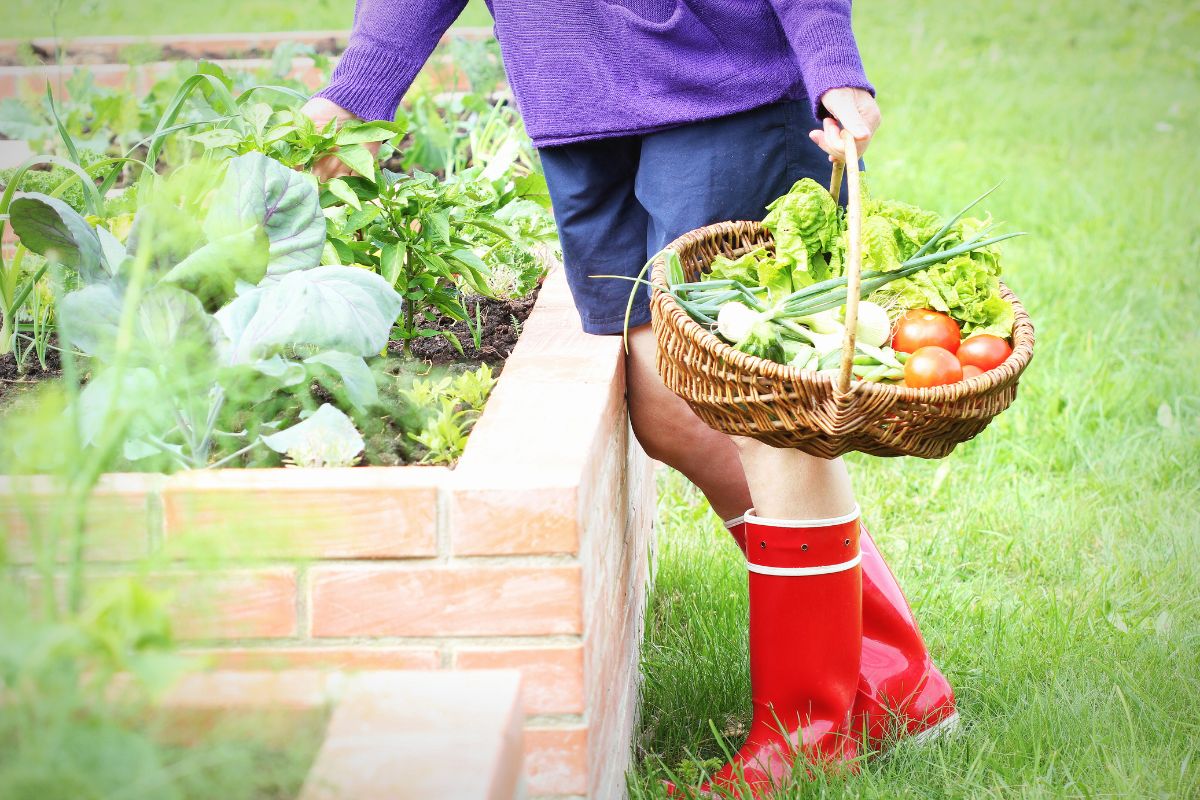
A garden kit is also a quick and easy way to set up your own raised garden. It won't require much maintenance since it's made of galvanized steel.
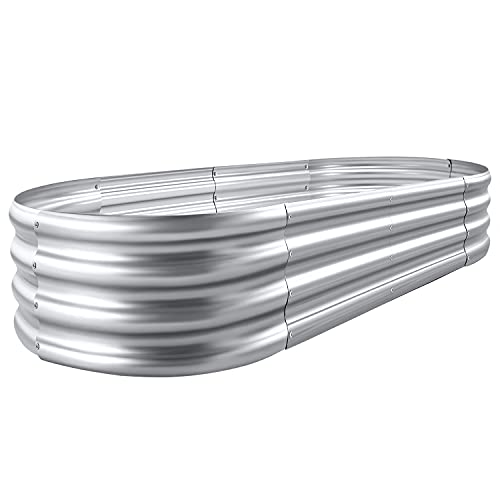
Check out this galvanized planter on Amazon.
Choosing The Right Pallet
Now that you know how to take good care of pallets and which materials are the most long-lasting, it's time to break down the ones you should get.
You should start by considering your budget. Yes, typical wood pallets are very cheap, which means that you will have to purchase new ones every time they rot and become home to pests.
This could also cost you your garden. If it's a home to pests, what's the purpose of having a raised garden bed?
Another consideration is to think of what easily fits your garden. If you have a small garden, building a concrete or stone pallet is not ideal.
Even though concrete or stone will last a lifetime, will it fit your garden? It could also take up a lot of space.
Maybe you want a small herb garden in your apartment. You could start with cheap wood pallets. As long as you line them properly, they will last.
How Can You Tell If a Pallet Has Been Treated?
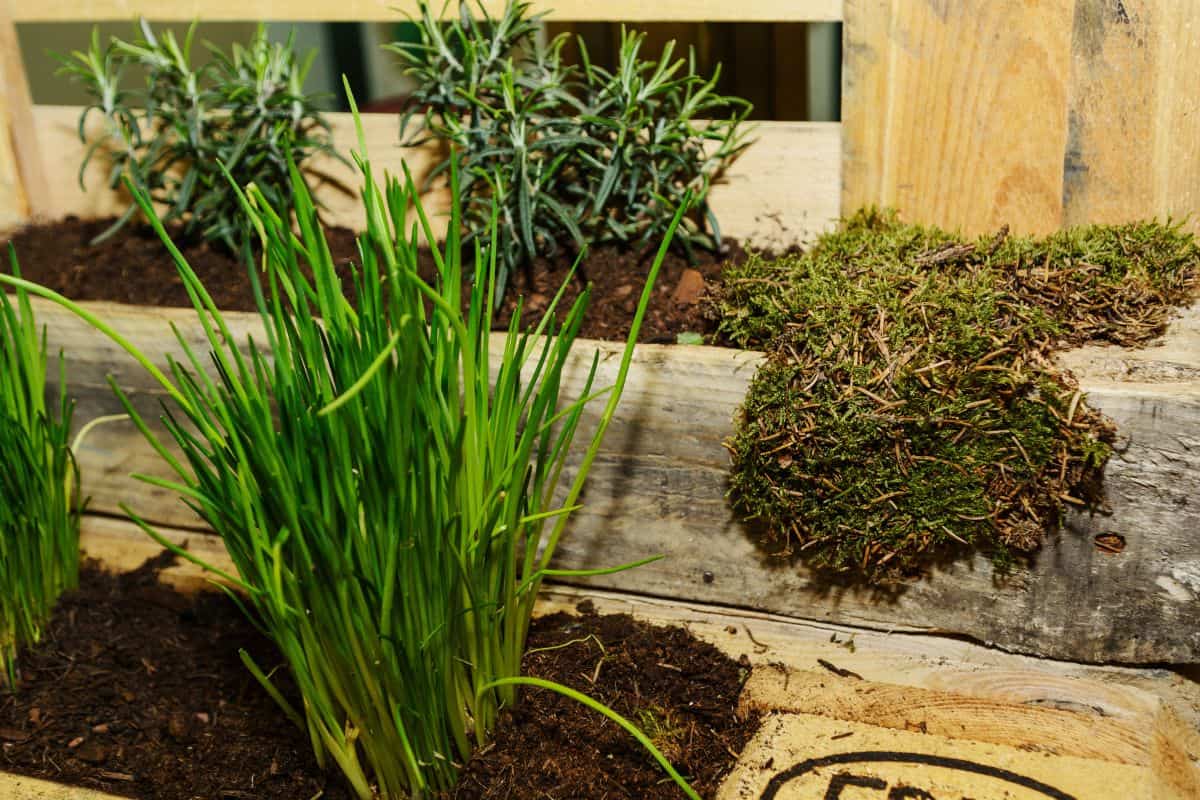
It's important to know whether your newly purchased pallet has been chemically treated to be safe. The way to do this is by looking for the International Plant Protection Convention (IPPC) logo stamped on any side of the wood.
If the wood has been fumigated, you will see the letters "MB" stamped on the wood. "MB" stands for methyl bromide, a chemical used to treat wood.
Additionally, as per IPPC standards, a pallet stamped with the letters "HT" has been heat-treated.
Generally, you should avoid unmarked pallets for a safer gardening experience. You don't want to grow produce in a pallet made of chemically treated wood.
Do Heat-Treated Pallets Expire?
Again, if the wood has the IPPC stamp and the letters "HT," this means that it has been heat-treated properly. As long as it has been heat-treated, it will never expire.
In Closing
Now that you have all the information about selecting the right pallet materials and tips to make them last longer in your garden, you can choose the pallet that you really need (and want).
If you want a brick pallet, a recycled plastic pallet, or just a typical wood pallet, it's up to you. The important thing is to know what's best for your garden.
Remember that some pallets only last a handful of years. Their longevity depends on your effort to make them last longer.
![How Long Do Pallet Raised Beds Last? [With Tips To Make Them Last Longer!]](https://gardentabs.com/wp-content/uploads/2024/01/How-Long-Do-Pallet-Raised-Beds-Last-With-Tips-To-Make-Them-Last-Longer.gif)
